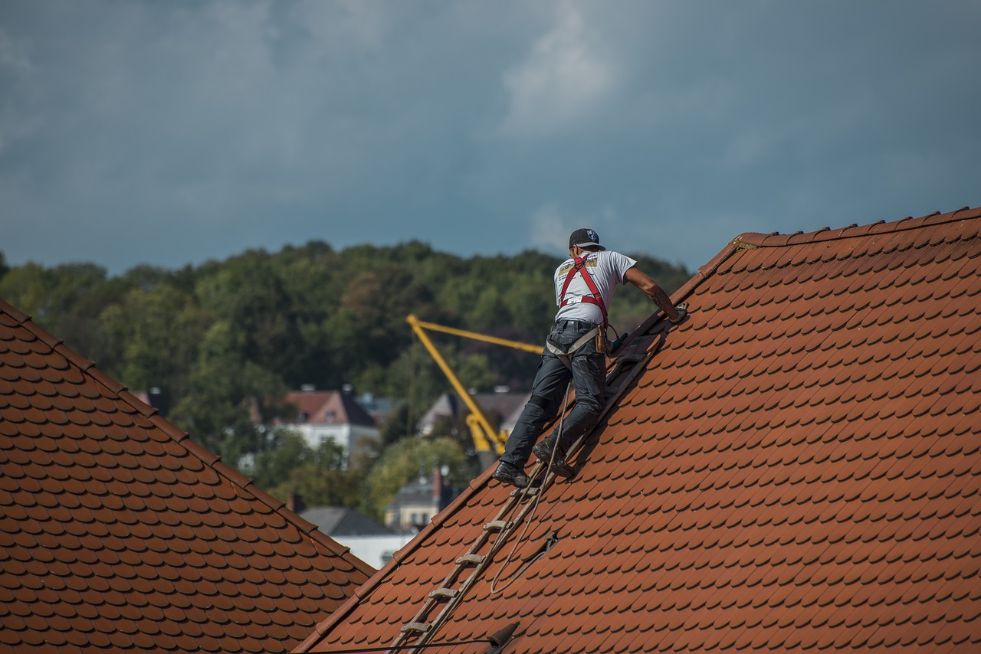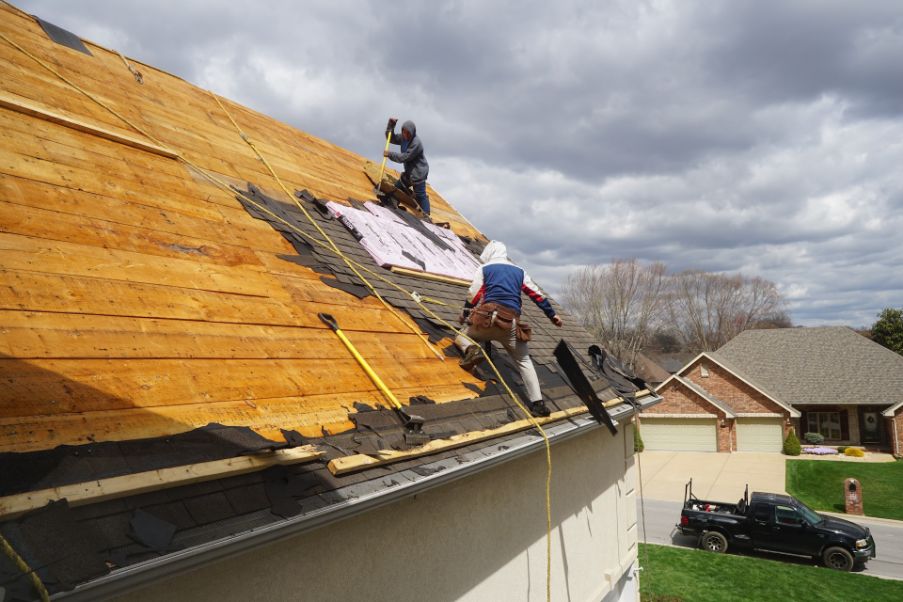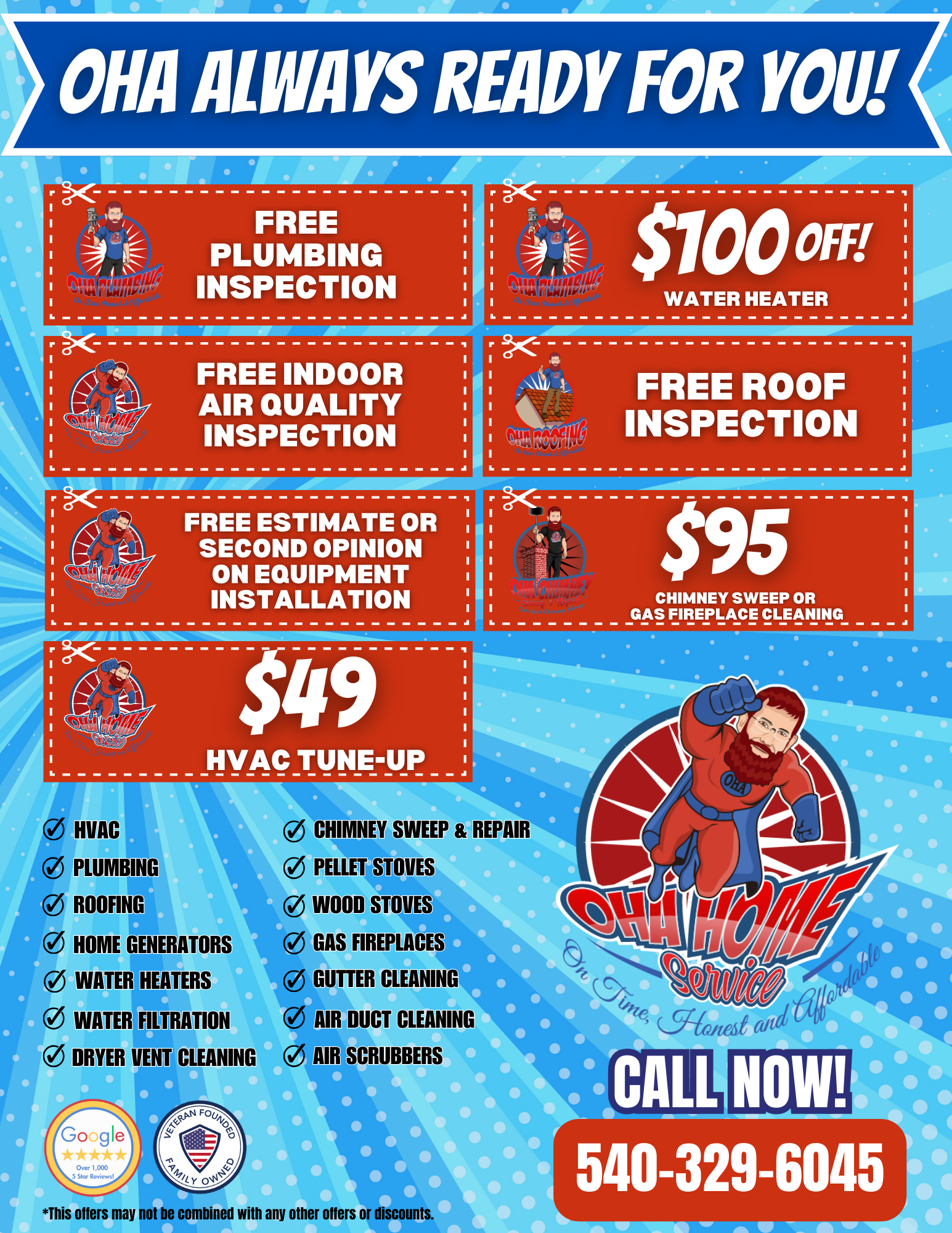Whether you’re building a new home, or looking to replace your old and damaged roof, hiring a roofing contractor can be quite daunting.
After all, there’s plenty of options out in the market and a lot is at stake given that your roof is an essential part of your home To that end, you want to make sure it’s in good hands.
That’s why we’ve compiled this list of 10 questions to ask before hiring roofing contractors.
We’ll cover everything from their experience and qualifications to their insurance and warranties, so you can be confident that you hire the best roofing contractor. So, let’s get straight into it!
1. Which Roofing Services Does Your Company Offer?
The first thing you should look for in any roofing contractor is the services they offer to ensure they can provide the specific ones that your roof needs.
Some contractors specialize in certain roofing materials or projects, while others offer a wider range of services.
For example, if you need a new roof installed, make sure that the contractor has experience with the type of roofing material you want to use. If you need roof repairs or maintenance, see that the contractor is also equipped to handle those types of projects.
Additionally, ask the contractor about any additional services they offer, such as gutter installation or repair, attic insulation, or skylight installation.
This can help you determine if the contractor is a good fit for all of your roofing needs and can potentially save you time and money by bundling services with the same contractor.
2. Do You Have The Necessary Experience and Qualifications?
Once you have determined that your shortlisted roofing contractors provide your desired services, it’s time to review their experience and qualifications. So, let’s explore some things that you should keep in mind:
- Experience
When researching potential contractors, you should research about their experience in the industry.
The greater their experience, the higher their knowledge and skills would be to handle any roofing project – from minor repairs to full roof replacements.
Furthermore, they will have a portfolio of past work to showcase their expertise.
Ask them how long they have been in business and what types of roofing projects they specialize in. You may also want to ask for examples of past work they’ve completed, including photos or references from past clients.
Contacting these references will allow you to ask about their experience working with the contractor and the quality of their work.
- Qualifications
Another vital factor to consider is certification and training.
A reliable contractor should be appropriately certified and trained to install and repair various types of roofing systems, including asphalt shingle, metal, and flat roofs.
Ideally, look for roofing contractors who have received certification from professional organizations like the National Roofing Contractors Association (NRCA).
3. Are You Adequately Licensed And Insured?
A licensed and insured roofing contractor will have the necessary coverage to protect you and your property in case of any accidents or damage during the project.
In fact, working with an unlicensed or uninsured contractor can lead to serious legal and financial consequences; if an accident occurs on your property, you could be held liable for any damages or injuries.
- Licenses
First, verify that the contractor has a valid license to perform roofing work in your state or local jurisdiction.
This guarantees that they are qualified to perform the work and are in compliance with local regulations. You can usually verify a contractor’s license by checking with your state or local licensing board.
Typically, roofing contractors have licenses within the state in which they work depending on the state requirements.
For instance, roofing contractors in California must hold a C-39 license, which certifies them to work on roofing and waterproofing projects.
On the other hand, Texas does not require roofing contractors to have a state-issued license; they must register with the Texas Department of Licensing and Regulation and present proof of liability insurance.
Meanwhile, in Fredericksburg, roofing contractors must have a contractor’s license issued by the Virginia Department of Professional and Occupational Regulation (DPOR). The DPOR regulates contractors to ensure they have the necessary skills and qualifications to perform their work safely and efficiently.
- Insurance
Secondly, you should confirm that the contractor is properly insured. This includes both general liability and workers’ compensation insurance.
General liability insurance protects your property from damage caused by the contractor or their employees. In contrast, worker’s compensation insurance protects the contractor’s personnel from injuries sustained while working on your property. Get proof of insurance and ensure that it is current and legitimate.
It is also important to confirm that the contractor is adhering to safety requirements, including Occupational Safety and Health Administration (OSHA) laws and recommendations, as well as any local safety regulations.
So, only finalize a roofing contractor that has a safety program in place, and their employees should be trained in proper safety procedures.

4. What Materials Do You Use, And What Kind of Warranty Do You Offer?
- Materials
Choosing the right roofing materials is another important decision when it comes to the longevity and durability of your roof.
So, ask roofing contractors about the materials they plan to use from the various options available, including:
- Asphalt shingles: This is one of the most common roofing materials used in the United States, and it’s also a popular choice in Fredericksburg. Asphalt shingles are durable, affordable, and come in various colors and styles.
- Metal roofing: Metal roofs are becoming increasingly popular due to their durability and energy efficiency. And while metal roofing is generally durable and long-lasting, beware of roofing contractors who use poor coatings or finishes as it can lead to rust, corrosion, and other issues.
- Slate: This premium roofing material is prized for its natural beauty and durability. It’s an excellent choice for homes with a traditional or historic aesthetic.
- Rolled roofing: This thin, inexpensive material is often used for flat roofs, but it can be prone to leaks and may not be durable enough to withstand harsh weather conditions. So, if your contractor insists on using this roofing material, it may be time to back out.
Your roofing contractor should be able to explain the benefits and drawbacks of each material and recommend the best option for your specific needs and budget.
- Warranty
In addition to choosing the right materials, ensuring they come with a warranty is also important.
After all, a warranty will provide you with peace of mind that your investment is protected and that you won’t have to pay for costly repairs in the future.
Ask your roofing contractor about the specifics of their warranty, including the length of the warranty, what is covered under the warranty, and any limitations or exclusions.
Also, don’t forget to read the fine print since some warranties may only cover materials, while others may cover both materials and workmanship. Because even if the materials come with a warranty, poor installation can lead to problems down the road. Hence, a good roofing contractor should also offer a warranty on their workmanship to ensure that any issues that arise due to poor installation are covered.
So, clarify any questions you have with your roofing contractor before signing any contracts.
5. Who Will Work On My Roof?
When it comes to hiring roofing contractors, the quality of the labor is just as crucial as the materials used and the warranties provided. A trained and experienced roofing team may make all the difference in ensuring that your project is performed safely, efficiently, and to your satisfaction.
One question to ask your prospective roofing contractor is whether they have their own crew of personnel or if they subcontract the work out to other organizations.
While there is nothing fundamentally wrong with subcontracting, you should find out that any subcontractors used by your contractor are trustworthy, fully licensed, and insured.
If your contractor has their own crew, you should inquire about their experience and certifications.
Another crucial consideration is whether a project manager or foreman will oversee the roofing team. Having a dedicated point person who can answer your queries and guarantee that the project is running on time and under budget can provide you additional peace of mind.
6. How Do You Prioritize Safety And Compliance During Roofing Projects?
Safety and compliance should always be one of your top priorities when looking for suitable roofing contractors.
Roofing is a dangerous job, and your contractor should take necessary precautions and comply with laws to protect their workers, your property, and anyone who may be passing by during the project.
- Safety
You should ask about the safety protocols and equipment that your contractor uses on the job.
A reputable contractor should have a comprehensive safety program in place, complete with proper training, safety gear, and procedures to minimize the risk of accidents and injuries.
It’s also important to ask about the techniques your contractor uses to minimize the risk of damage to your property.
For example, do they use tarps and other protective measures to prevent debris from falling onto your lawn or garden? Do they plan to access your roof safely without damaging your landscaping or other structures?
- Compliance
Another critical factor to consider is the contractor’s compliance with local building codes and regulations in your area. This might include requirements for things like roof slope, ventilation, insulation, and fire resistance.
Depending on where you live, special rules or permits may also be required for things like solar panels, rainwater harvesting systems, or other green features.
Moreover, you should also check that your contractor is committed to environmentally responsible practices. This might include recycling old roofing materials, using eco-friendly products, or incorporating green features like solar panels or rainwater harvesting systems.
And who says talking about safety and compliance can’t be fun?
With the right attitude and a positive outlook, even the trickiest aspects of a roofing project can be engaging and interesting!
7. Will My Roofing Project Be Managed Efficiently And Effectively?
When it comes to home improvement projects, timing is everything.
This is especially true when it comes to roofing projects, which can be disruptive and time-consuming. That’s why it’s important to work with a roofing contractor with a solid timeline and project management plan in place.
- Duration Of The Project
One of the first things to ask any potential roofing contractor is how long they expect your project to take.
This will give you a general idea of what to expect in terms of the project’s length and the disruption to your daily routine.
Your contractor should be able to provide you with a clear timeline, including a start date, an estimated completion date, and any milestones or deadlines along the way.
- Project Management
It’s also important to ask about how the project will be managed.
Who will oversee the work, and who will be your main point of contact throughout the project?
Any reputable contractor should have a project manager or supervisor responsible for coordinating all aspects of the project—from materials and equipment to workers and subcontractors.
What’s more, your contractor should be willing to keep you updated on the project’s progress, including any delays or unexpected issues that arise. They should also be willing to work with you to address any concerns or questions you may have along the way.
You should also clarify how the project will be completed, i.e., will your contractor work on your roof continuously until it’s finished, or will they work on it in stages? Will they clean up each day or wait until the end of the project to remove debris and equipment?
A good contractor should be willing to work with you to develop a plan that meets your needs and minimizes disruption to your daily routine.
8. What Are Your Pricing and Payment Options?
- Pricing
Roofing projects can be a significant investment, so you should clearly understand pricing and payment before hiring a contractor.
Remember that the lowest bid may not always be your best option. In fact, a bid that seems too good to be true could indicate that the contractor is cutting corners or using subpar materials.
As a rule of thumb, a reputable roofing contractor should provide you with a detailed estimate that includes all costs associated with the project, including labor, materials, and any additional fees or taxes.
They should also be willing to provide you with a written contract outlining the project’s scope and payment schedule.
- Payment
Speaking of payment, it’s also important to understand how your contractor expects to be paid.
Some contractors may require a down payment before starting work, while others may require payment in full upon completion.
Ensure you understand the payment schedule and are comfortable with the terms before signing any contracts. By asking about pricing and payment upfront, you can avoid any surprises or unexpected costs down the line.

9. How Will You Protect My Space During The Roofing Project?
When undertaking a roofing project, it’s important to see that your contractor agrees to take steps to protect your yard and landscape.
This is because roofing work can cause debris and other materials to fall onto the surrounding area, potentially damaging plants, trees, and other structures.
Before hiring a roofing contractor, ask them about their plan for protecting your yard and landscape during the project. A good contractor will clearly tell you their plans, which include using tarps or other materials to cover plants and trees, as well as using plywood or other protective coverings on any structures that could be damaged during the project.
Before the work begins, you should be completely comfortable with the plan distinctly outlined in the contract. This will help to ensure that your yard and landscape are protected throughout the project and that any damage is minimized or repaired promptly.
10. How Will You Clean Up After the Project Is Completed?
After a roofing project is completed, a significant amount of debris is often left behind.
From old shingles and nails to packaging materials and tools, your space can quickly become cluttered and unsafe if not properly cleaned up.
That’s why you should always ask roofing contractors about their cleanup and disposal procedures before hiring them.
A reputable contractor should have a plan in place for cleaning up the job site, which includes disposing of any waste materials in an environmentally-friendly manner.
In addition to asking about cleanup procedures, also clarify who is responsible for disposing of the waste materials. Will the contractor take care of it, or will you be accountable for arranging disposal? Make sure you understand the plan and are comfortable with the process before the work begins.
Another thing to consider when it comes to the cleanup is whether the roofing contractor will use a dumpster or other large container to collect the waste materials. If so, make sure you clearly understand where the container will be located and for how long, as it could impact parking and traffic in your neighborhood.
A clean job site not only looks better, but it’s also safer for everyone involved. Nails and other debris left on the ground can cause injury or damage to property, so they should be removed properly and promptly.
Parting Thoughts
And there you have it, the top 10 questions you should ask before hiring roofing contractors.
Don’t forget to ask about the roofing contractor’s experience, workforce, materials, and warranty, as well as their safety and compliance practices. Be sure also to discuss the project timeline and pricing, not to mention their cleanup and disposal process.
By doing your due diligence and asking the right questions, you can avoid headaches and costly mistakes down the road.
If you’re in need of roofing services or any other home maintenance needs, be sure to check out OHA HVAC, Plumbing, Roofing, Chimney & Fireplaces!










